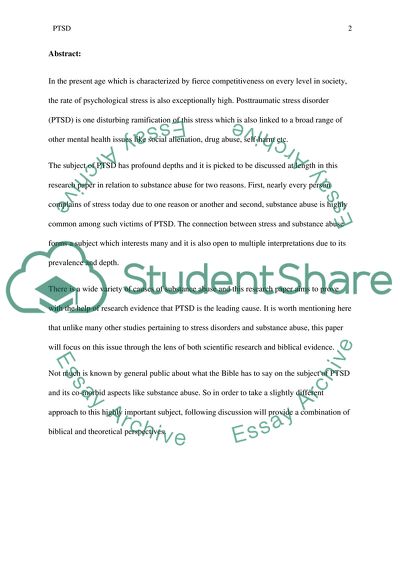Cite this document
(Posttraumatic Stress Disorder and Substance Abuse Research Paper, n.d.)
Posttraumatic Stress Disorder and Substance Abuse Research Paper. Retrieved from https://studentshare.org/health-sciences-medicine/1867524-ptsd
Posttraumatic Stress Disorder and Substance Abuse Research Paper. Retrieved from https://studentshare.org/health-sciences-medicine/1867524-ptsd
(Posttraumatic Stress Disorder and Substance Abuse Research Paper)
Posttraumatic Stress Disorder and Substance Abuse Research Paper. https://studentshare.org/health-sciences-medicine/1867524-ptsd.
Posttraumatic Stress Disorder and Substance Abuse Research Paper. https://studentshare.org/health-sciences-medicine/1867524-ptsd.
“Posttraumatic Stress Disorder and Substance Abuse Research Paper”, n.d. https://studentshare.org/health-sciences-medicine/1867524-ptsd.


